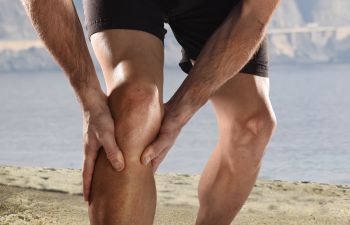
Jumper’s knee, medically known as patellar tendonitis, can happen to anyone. However, it is most common among professional athletes that jump a lot, like track, basketball or volleyball players – hence, the name “jumper’s knee.” Yet, it can complicate everyone’s life the same.
Whether you have an office job, are an athlete, live an active lifestyle or have a physically demanding job, a painful knee with limited mobility will hold you back. For professional athletes, it can even be career-ending.
Jumper’s Knee is a Progressive Injury
Jumper’s knee is a severe condition that can worsen over time, ultimately requiring surgery if left untreated. Regrettably, many athletes ignore it and continue training and competing because they think it is just a minor ache. Likewise, many non-athletes brush it off as a body pain that will go away on its own eventually. Unfortunately, this is not the case.
The patellar tendon connects the shin bone to the bottom of the kneecap. It is one of the primary tendons in knee function, elemental in bending and straightening the knee. When you jump, it places extra stress on the tendon. Jumper’s knee refers to tears or damage to this tendon. These tears worsen if you do not address them.
Contributing factors may include hard playing surfaces, shoes without enough padding, obesity, aging, chronic diseases that weaken the tendon, uneven leg muscle strength, tight leg muscles and misaligned ankles, feet and legs.
Why You Should Treat Jumper’s Knee Sooner Than Later
Jumper’s knee begins slowly, with micro-tears in the patellar tendon causing tissue weakness and inflammation. Then, the tears grow and become more inflamed with continued physical activity.
If you have jumper’s knee, we recommend you seek early medical attention and treatment to prevent further damage to your knee. Our experts at Robotic Hip and Knee Replacement LA can assess the severity of your injured or inflamed patellar tendon and determine what treatment option is best for you and how long you should rest for a full recovery.
If you are experiencing swelling and tenderness below the kneecap, difficulty straightening your knee, increased pain when climbing stairs or kneeling or any other chronic discomfort, contact us to find out more about the jumper’s knee treatments we offer. Don’t let patellar tendonitis be a severe setback. Instead, let us help you deal with it early to shorten your recovery time dramatically.
Posted on behalf of
8436 West 3rd Street Suite 800
Los Angeles, CA 90048
Phone: (310) 792-9300
Email: fk@docsspineortho.com
Mon - Fri 8AM - 5PM